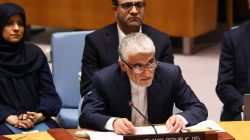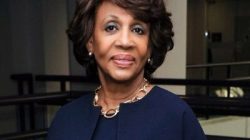Despite efforts from President Bola Tinubu’s administration, Nigeria’s healthcare system continues to face significant difficulties. It is crucial for the government to recognize these ongoing issues and implement decisive, well-planned measures to revitalize the sector.
Recent news indicates that the Nigeria Union of Allied Health Professionals is considering a nationwide strike if the government does not resolve unpaid salaries dating back seven months due to the pay raise implemented in July 2024. The union has expressed frustration over the delay in applying the revised Consolidated Health Salary Structure for their members as well as other healthcare personnel. Such an outcome would be regrettable.
Central to their demands is the government’s failure to honour a 2014 collective bargaining agreement with health professionals. While the administration adjusted the Consolidated Medical Salary Structure for doctors in line with the agreement, it did not extend the same to other health professionals, the union said. This lack of parity is a lingering source of discontent.
It is regrettable that previous governments entered into accords with the union yet did not follow through on their commitments. However, governance is an ongoing process. As such, it falls upon the Tinubu administration to step in and take action.
A work stoppage could deny Nigerians essential healthcare services. It is imperative for the government to resolve this issue by ensuring that all medical personnel are treated with equality and respect.
Breaking commitments made to labor organizations exacerbates distrust and unrest within the industry.
Physical therapists, radiation specialists, and other healthcare support staff play crucial roles within the medical field and ought not to be considered subordinate in comparison to physicians and nurses.
It is essential to prioritize the well-being of every healthcare worker immediately to cultivate a feeling of inclusion and dedication. The administration should guarantee justice and equality among various groups of health personnel.
Healthcare providers ought to refrain from operating in isolation. By presenting a unified stance, they can bolster their bargaining power and ensure that no faction gets marginalized.
As healthcare workers continue to leave en masse, the government needs to offer encouragement and rewards to keep essential talent. However, this field is regularly thrown into disarray by strike warnings and real labor disputes, typically sparked by governmental disregard or unfulfilled commitments.
In May, the National Association of Resident Doctors from the Federal Capital Territory initiated a three-day warning strike after 127 healthcare employees were dismissed by the FCT Civil Service Commission. Prior to this, they had conducted a one-day protest in January due to non-payment of wages and benefits.
In April, the Akwa Ibom branch of the Nigerian Medical Association threatened a strike over the non-payment of medical lecturers at the University of Uyo, issuing a 21-day ultimatum to the university management.
The health sector continues to face a severe crisis, characterized by hospitals lacking sufficient staff and equipment, and primary healthcare centers functioning poorly. Patient care remains inadequate. In contrast to Cuba, Nigeria significantly fails to meet the World Health Organization’s suggested 1:600 doctor-to-patient ratio.
Given that just 5.0 percent of the national budget is dedicated to healthcare, which falls significantly short of the African Union’s Abuja Declaration aim of 15 percent, adverse health outcomes continue to be prevalent.
People in Nigeria still endure illnesses such as malaria, typhoid, meningitis, hypertension, diabetes, and cancer, conditions that contribute significantly to high death rates and reduced lifespans.
As of 2024, Nigeria’s projected life expectancy stands at approximately 54.6 years, which is below both the continental average for Africa at 64.2 years and the worldwide average of 75.3 years.
In the meantime, the ruling class appears insulated from these severe challenges. By having substantial resources allocated for medical travel abroad, they overlook the needs of public healthcare facilities and their staff.
While N21 billion was spent on the Aso Rock clinic for the First Family, many general hospitals struggle with basic equipment and power supply.
In order to rescue the circumstances, the administration needs to promptly enhance the infrastructure of public hospitals and transform primary healthcare centers. Comprehensive reforms along with sincere dedication are essential for empowering Nigeria’s healthcare system to deliver high-quality services.
Provided by Syndigate Media Inc. (
Syndigate.info
).






